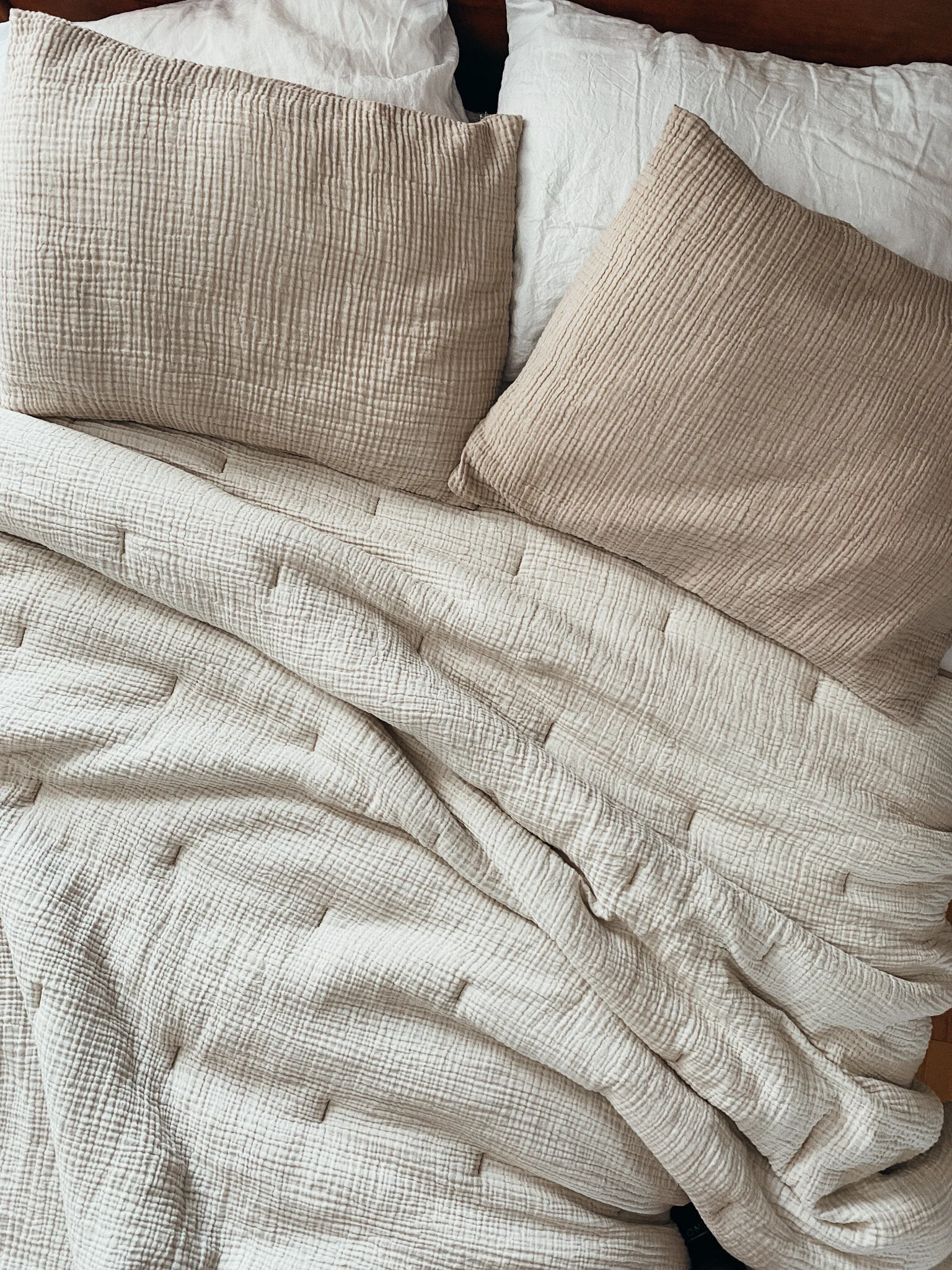It’s Earth Day, friends!
The perfect opportunity to lay out some sustainability tips! Some of these you may have heard a million times before and some may be new.
It may be easy to look at someone who is already living a relatively eco-friendly lifestyle and think you could never be like that, but I wasn’t always this earthy, crunchy person. I have a story just like everyone else, a journey that inspired me to become more sustainable and take responsibility for my actions and it’s impact on the environment.
I owe a lot of credit to traveling for giving me such a sense of love for nature and our planet. It’s when you see the beauty up close that you feel a personal responsibility to preserve and protect it. Seeing the world has inspired me to protect it. The Earth is our home and we must take care of it.
In our every deliberation, we must consider the impact of our decision on the next seven generations // The Great Law of Peace
Use a reusable bottle + ditch single-use plastics
First and foremost, get yourself a reusable bottle. There are some super easy things we can do to lead a more earth-friendly lifestyle, and this is certainly one of them. There are countless options out there, I’ve personally owned Swell, Hydroflask (my favorite) and Byta cups.
Other ways you can reduce your plastic load is to get some reusable bags, larger ones work great for groceries and smaller produce bags work well for produce and any bulk food shopping you might do.
Reducing plastic completely is hard and can feel overwhelming. I know I can get very frustrated when my only options are non-organic produce with no plastic, or organic with produce covered in plastic. It’s also been especially challenging during the pandemic, where there is now a lot of fear surrounding anything reusable. I encourage you to do what you can and try to find the best options out there.
Eat more plants
Not only is it good for you, but it’s good for the planet. Animal agriculture contributes more to greenhouse gases than all of transportation combined (planes, trains, automobiles, boats, etc.) Plus, plants only come with good side effects. Lower your grocery bill, trim your waistline, save the planet! Say whatttt. If you’re skeptical and live in the area, go to Plant City. Your life will be transformed by the power of plants.
Compost
I started composting last year and it’s been a wonderful experience so far. The main reason I wanted to compost was because the majority of the waste I produced were food scraps. This seems likely true for a lot of Americans, as the EPA reports food waste being the largest component within landfills in the US. And if food is not allowed to degrade properly, like when in a landfill, methane gas will be released, contributing to climate change.
Not to mention, it cut down on costs hugely. I honestly can’t remember the last time I bought trash bags, and with landfills becoming overcrowded, prices for trash bags or waste removal is getting exceedingly more expensive. Composting costs me $20 a month, plus I get a bucket back for my garden or house plants each month.
Educate yourself
Documentaries are such a good way to gain knowledge in a field you are interested in. Some great places to start regarding sustainability are The Plastic Ocean, Cowspiracy and The True Cost on Netflix. If I am missing any good ones, please leave them in the comments below!
Buy less, but better quality // or shop secondhand
This can come in many different forms, but take clothing for example. The US sends over 20 billion pounds of textiles to the landfill per year and only about 10-15% of donated material makes it to secondhand shops. Instead of buying a lot for a little, focus on quality. It will be more of an upfront cost, but in the long run, will last much longer.
If cost is a deterrent, consider secondhand shopping like Thred Up or check out marketplace or buy nothing groups of Facebook.
Get a bidet
This tip is probably more relevant than ever, given the mass-purchasing of toilet paper during this pandemic. I used to always poke fun at people who had bidets, but now I am the proud owner of one. I’m not sure why we all haven’t caught on to this trend yet, but you should get yourself a Tushy — stay clean and avoid fighting over toilet paper. It’s a win-win.
Ok, last point. Less toilet paper = the more money you save. I’m telling you, switching to reusables saves you so much money.
Upcycle
This goes along with the three R’s. Reduce, reuse and recycle. Some of my favorite ways to upcycle — give an object new life — is to reuse my glass containers for food storage.
I remove the labels of glass containers from items like pickle jars, tomato sauce jars, etc. with a combination of coconut oil, baking soda and lemon essential oil. It does the trick every time. Then I put my dried goods in them for pretty storage in my cabinets or fridge. Plus, it’s an added bonus that you can easily see when you are running low on pantry staples.
Another favorite of mine is to keep the packing from shipments or paper bags from stores and reuse to wrap gifts. Hopefully a lot of your goodies are being sent with paper packaging instead of bubble wrap (definitely not always the case), but it gives you a chance to repurpose before recycling.
Consider the products you’re using
I was aware that certain products and ingredients could be harmful to human health, but I never considered the harm they could cause to our oceans. A particular product to consider is sunscreen, with ingredients like oxybenzone, that can be very harmful to coral reefs. Our ocean provides our earth with more than half of the oxygen in our environment. We need our corals, and our oceans, for life on this planet.
We do not inherit the Earth from our ancestors, we borrow it from our children // Native Proverb














































